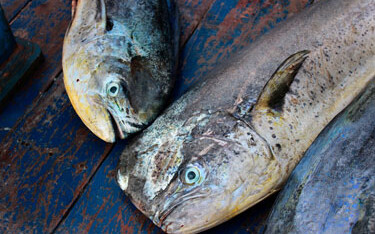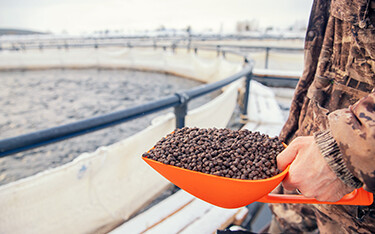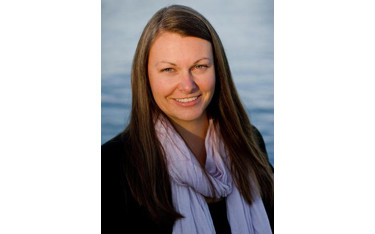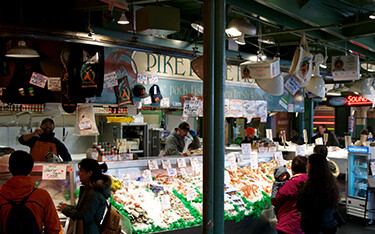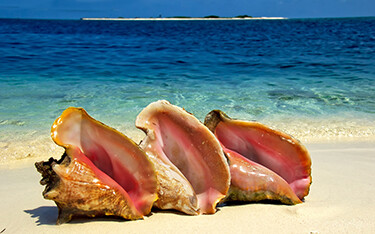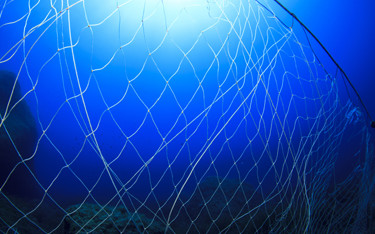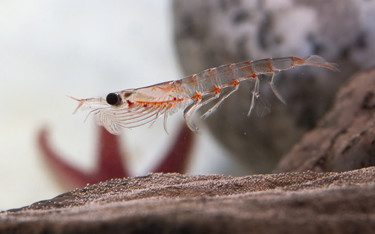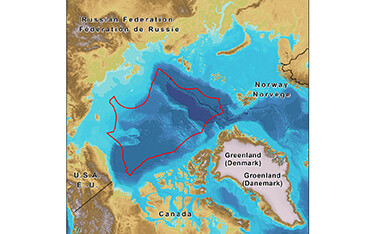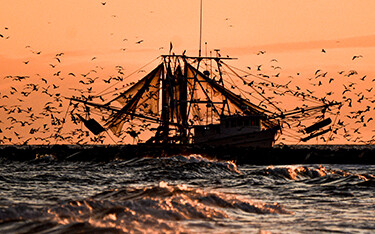Ned Daly is a sustainability strategist with Diversified Communications. He has worked on sustainable markets in a variety of resources for 25 years. Ned worked in seafood for the last decade with SeaWeb, Previously he was director of RugMark International (now GoodWeave), a certification program for child-labor-free rugs coming from Southeast Asia. He also served as chief operating officer for the Forest Stewardship Council in the United States, managing relationships with industry leaders and a diversity of key stakeholders including conservation nongovernment organizations, policymakers and industry trade associations. Ned has also worked on sustainable markets in the agricultural sector and the relationship between resource extraction and ecosystem health. He lives in Alfred, Maine.
Author Archive
In a new study led by World Wildlife Fund Peru (WWF-Peru), Peru’s mahi and jumbo squid fisheries were used to track how digital technologies can support small-scale fishers’ engagement with global seafood traceability standards.
The study was organized in collaboration with the Global Dialogue on Seafood Traceability (GDST) Secretariat, WWF-US and the Institute of Food Technologists (IFT), and traceability technology companies
… Read MoreThe Aquaculture Stewardship Council has initiated a public consultation on new requirements in its standards to improve the welfare of farmed fish on issues related to water quality, stocking density, and slaughter.
The public consultation is now open, and allows for feedback on the proposed new requirements in the ASC standards. The ASC said it is interested in hearing from producers, experts from animal welfare NGOs and charities, scientists
… Read MoreThe Conservation Alliance for Seafood Solutions is a non-profit organization working to develop itself into a global hub to support the seafood industry’s adoption of sustainable practices and innovation. The organization’s goal is to “help the industry make sense of the complex sustainability challenges in seafood by working with a broad range of stakeholders to reduce barriers to and increase the seafood industry’s
… Read MoreWith the intention of increasing accountability and transparency in reporting on fisheries improvement projects (FIPs), Sustainable Fisheries Partnership has published an update to its FIP Evaluation Tool. This revision, the fourth since the tool launched in 2007, clarifies guidelines for use, addresses the need for improved accountability, and more explicitly identifies connections between FIP actions and fishery improvements.
“These
… Read MoreA new poll released by Environmental Defense Fund indicates U.S. voters are open to consuming more home-grown seafood that adheres to strong consumer and environmental standards for American aquaculture.
The poll found 84 percent of voters support a proposal that “would first examine the risks and opportunities of fish farming (also known as aquaculture) in U.S. federal waters before setting high standards and regulation for safe and
… Read MoreOceana will launch a scientific expedition to investigate and document the conditions of two of the most biodiverse underwater areas in the Gulf of Mexico, it announced.
The expedition will explore the Scorpion Reef (Arrecife Alacranes in Spanish) and the Bajos del Norte National Park. The marine protected area, located 140 kilometers north of the Yucatan Peninsula, is the largest reef in the southern Gulf of Mexico, Oceana said.
“Our
… Read MoreA new report has foundthe best way to reduce the impact of lost fishing gear is to enforce existing rules.
The report, “Ghost Gear Legislation Analysis,” was jointly written bythe World Wildlife Fund (WWF), Ocean Outcomes, and Ocean Conservancy’s Global Ghost Gear Initiative (GGGI). It assesses existing government legislation and policies addressing ghost gear and provides recommendations to governments
… Read MoreNew research from Oregon State University recently published in the Marine Ecology Progress Series indicates climate conditions have a significant impact on Antarctic krill reproductive success.
Because krill is such an important component of healthy ecosystems, the impacts of krill abundance be far-reaching, the study found.
The general patterns of climate conditions that are affecting krill species are natural five- to seven-year cycles,
… Read MoreAn international agreement to protect the fisheries of the central Arctic region, signed in 2018, went into effect 25 June.
The agreement was signed by nine countries and the European Union. Signatories include Arctic countries – the United States, Canada, Russia, Denmark, and Norway – and countries with fishing interests there, including China, Japan, South Korea, and Iceland.
Before fishing can begin in the 2.8
… Read MoreNew research from Rutgers University has investigated community and fisher strategies for adapting to stocks changing as a result of ocean warming.
The paper, "Not All Those Who Wander Are Lost – Responses of Fishers’ Communities to Shifts in the Distribution and Abundance of Fish," focused on the groundfish trawl fishery in Northeast U.S., an area that is already seeing warming temperatures and is considered a hotspot for
… Read More






